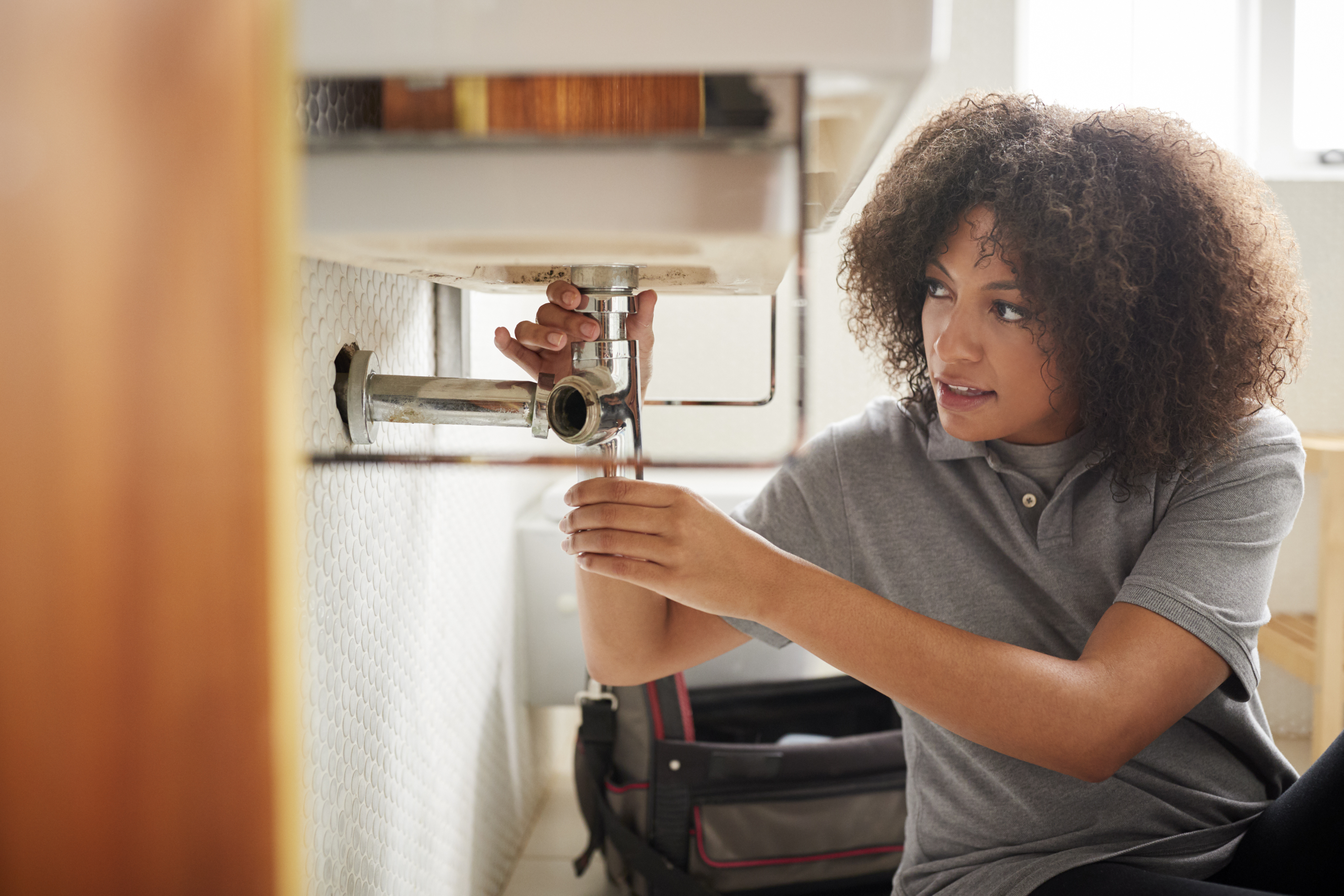
‘I am a strong believer that no one should be stereotyped into specific roles and this includes the perception of men on the construction site’ – Jwerea Malik, operations manager at Balfour Beatty, and co-chair of the group’s Gender Equality Affinity Network.
After we spoke to our plumbing student, Leah Carney, and hearing her inspiring story, we’ve been determined to continue the dialogue surrounding women in the construction industry.
Leah is an ambitious and driven individual: a designer who had taken to delivery driving for extra money, and then decided to train as a plumber at the outset of the pandemic. She is already qualified as a plumber, gaining new electrical qualifications, and setting up her own business.
But Leah is just one of thousands of similarly hard-working people around the country who have made the construction industry their home and future. Over the pandemic, the construction industry has seemed to appeal to hard-working and skilled women, as a refuge from redundancy and an opportunity for a fulfilling career. According to Lianne Lawson, a construction manager who has been in the industry for 14 years:
‘The pandemic has taught all of us how quickly we can evolve and adapt to new ways of working, and I think the mindset for everyone has changed. [...] Having to work from home in many cases has opened the industry up to the possibility of more flexible working conditions.’
It goes without saying that the construction industry should accommodate everybody who has a desire to work within it; and perhaps one inadvertent result of the pandemic is that this has happened.
For decades, the construction industry has been perceived as a male-dominated industry. But hearing the stories of women in construction, we learn that the last decade or two has resulted in greater accessibility to footholds and successful careers for thousands of women across the UK. Since then, it has been exciting to witness the brilliant and essential contributions that women have made to the trade industry, only further demonstrating that there absolutely is a much-needed place for them within the sector.
‘When i joined the industry 10 years ago as a graduate engineer, I was, more often than not, the only woman in the room. I felt the pressure to be seen as a peer to my male colleagues. – Malik
Jwerea Malik also notes how, from being the only woman on a project, the industry has now developed to seeing 23% of new starters in construction being women. It’s refreshing to consider how far the construction industry has come in recent times, and these stories of success are a testimony to the freedoms and attitudes of today.
But as important as it is to acknowledge and celebrate how far we’ve come in the construction industry, there is obviously further we can go in ensuring that everybody feels welcome, and to encourage everybody to contribute in a fast-growing and multi-faceted industry. Considering the skills shortages of today’s construction sector, and the huge demand for work, it only makes sense for the prosperity of the industry itself that we look for strong, skilled tradespeople from all aspects of society.
I was considered a bit of a novelty, noticed more for my differences than the engineering skills and expertise we had in common. I felt I had to prove myself, not just in terms of delivering my work to the best of my ability, but to be seen as an equal to my teammates. The rarity of a woman on a construction site 10 years ago meant inclusion wasn’t second nature. – Malik
What’s more, it goes without saying that a successful business is an inclusive business. Those leaders of the trade who represent all aspects of society are those with a greater customer base, a broader image, and who ultimately thrive in a competitive market. It suits everybody to make sure that construction is not a career for the men only – frankly, why limit ourselves?
‘I think it was my own perception that I couldn’t do it, so I was trying to break that mentality, which the people around me helped to do’ – Lianne Lawson.

Success in the construction industry is all about ability, and should never be about any aspect of your gender and background. If you have an interest in joining the construction community, don’t hesitate; from an outsider perspective, it might look like a male-dominated environment, but as you can see, things are changing. It just takes some bravery, self-belief, and knowledge that you are judged on your ability and willingness to work, over any other factors.
Women in construction are no longer a novelty; they are essential to the industry’s future. Why not be a part of this future, and join women like Leah, Lianne, and Jwerea? It takes one call to Access Training to get your career on track.
Learn your trade. Get qualified. Make it happen.